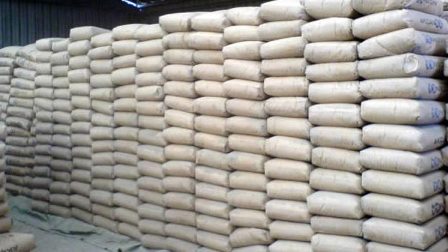Cement is one of the most essential building materials in Nigeria, used in almost every construction project. From roads and bridges to residential homes and commercial buildings, cement plays a crucial role in the nation’s infrastructural development. If you are planning a construction project or simply curious about the cost of cement in Nigeria, this comprehensive article will provide you with all the information you need about the current prices of cement in 2024, the factors affecting these prices, and tips on making cost-effective purchases.
Overview of Cement Industry in Nigeria
Nigeria’s cement industry is one of the largest in Africa, with several major players dominating the market. Over the years, the industry has grown significantly, with local production meeting a substantial portion of the country’s cement demand. The major players in the Nigerian cement market include Dangote Cement, Lafarge Africa Plc, BUA Cement, and Ashaka Cement. These companies have invested heavily in local production facilities, ensuring a steady supply of cement for both domestic consumption and export.
Current Prices of Cement in Nigeria (2024)
The price of cement in Nigeria fluctuates due to various factors such as demand, supply, government policies, and transportation costs. As of 2024, the average price of a 50kg bag of cement in Nigeria ranges between ₦4,200 and ₦5,500, depending on the brand, location, and retailer. Below is a breakdown of the current prices of popular cement brands:
1. Dangote Cement
- 50kg Bag: ₦4,300 – ₦5,500
- Wholesale (600 bags): ₦2,500,000 – ₦3,100,000
2. Lafarge Cement (Elephant Cement)
- 50kg Bag: ₦4,200 – ₦5,200
- Wholesale (600 bags): ₦2,400,000 – ₦3,000,000
3. BUA Cement
- 50kg Bag: ₦4,200 – ₦5,400
- Wholesale (600 bags): ₦2,500,000 – ₦3,000,000
4. Ashaka Cement
- 50kg Bag: ₦4,000 – ₦5,000
- Wholesale (600 bags): ₦2,400,000 – ₦2,900,000
Regional Price Variations
Prices may vary depending on your location. In urban centers such as Lagos, Abuja, and Port Harcourt, prices tend to be higher due to increased demand and higher transportation costs. In rural areas, prices may be slightly lower, but availability could be an issue.
Factors Influencing Cement Prices in Nigeria
1. Cost of Production
The production of cement involves significant costs, including raw materials (limestone, clay, and gypsum), energy, and labor. Any increase in these costs directly impacts the price of cement.
2. Exchange Rates
Since some raw materials and machinery are imported, fluctuations in the exchange rate can affect production costs and, consequently, the price of cement.
3. Transportation Costs
The cost of transporting cement from manufacturing plants to retailers is a significant factor. Poor road infrastructure and rising fuel prices often lead to higher transportation costs, which are passed on to consumers.
4. Government Policies
Import restrictions, taxes, and duties imposed by the government can influence the supply of cement and affect its price.
5. Seasonal Demand
The demand for cement is usually higher during the dry season when construction activities peak. This increased demand can lead to temporary price hikes.
How to Buy Cement at the Best Price in Nigeria
1. Buy in Bulk
If you have a large construction project, consider buying cement in bulk. Wholesale purchases are generally cheaper than buying individual bags.
2. Compare Prices
Take the time to compare prices from different retailers and suppliers in your area. You may find significant price variations.
3. Consider Location
Buying cement directly from factories or distributors in regions close to cement plants can save you transportation costs.
4. Plan Ahead
Avoid last-minute purchases, especially during the dry season when prices tend to be higher. Planning ahead can help you lock in lower prices.
Tips for Storing Cement
Proper storage of cement is crucial to maintain its quality and usability. Follow these tips to ensure your cement remains in good condition:
- Store in a Dry Place: Cement absorbs moisture from the air, so it should be stored in a dry and well-ventilated area.
- Elevate the Bags: Place the cement bags on wooden pallets or platforms to prevent direct contact with the floor.
- Cover with Plastic Sheets: Use plastic sheets to cover the bags and protect them from humidity.
- Use Older Stock First: Follow the “first in, first out” principle to use older cement stock before newer bags.
Future Outlook for Cement Prices in Nigeria
The Nigerian cement industry is poised for further growth, with ongoing investments in infrastructure and housing projects. While prices may continue to fluctuate, the government’s commitment to improving transportation infrastructure and reducing import dependency could help stabilize prices in the long term.
Conclusion
Cement remains a vital component of Nigeria’s construction industry, and understanding its pricing dynamics is essential for anyone involved in building or development projects. As of 2024, the price of cement in Nigeria ranges from ₦4,200 to ₦5,500 per 50kg bag, depending on the brand and location. By considering factors such as production costs, exchange rates, and seasonal demand, you can make informed decisions and potentially save money on your purchases. Whether you are a contractor, builder, or individual homeowner, staying informed about cement prices will help you plan and execute your projects more effectively.



